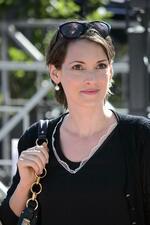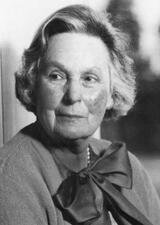
Mathilde Dorothy De Rothschild
Mathilde Dorothy De Rothschild was deeply involved in all facets of Zionist politics. She was an extremely hard worker and proved to be invaluable to Zionist efforts and the Rothschild Foundation.
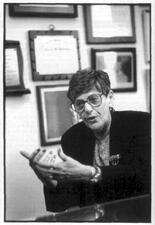
Ruth Rothstein
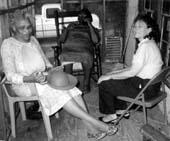
Vivian Leburg Rothstein
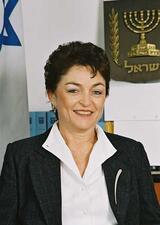
Saviona Rotlevy
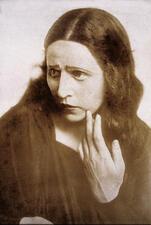
Hanna Rovina
Called the "High Priestess of the Hebrew theater," Hanna Rovina was awarded the Israel Prize for Theater Arts for her contributions to the Habimah stage and her commitment to reviving the Hebrew language. Acting with the Habimah theater, she played many different parts over the course of six decades. A year before her death, Habimah named its large auditorium after her.
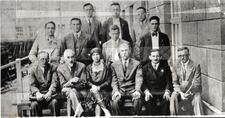
Anna Rozental
Anna Rozental belonged to the generation of Jewish labor activists who had already been active in the founding phase of the General Jewish Labor Bund under the Russian Empire and who were highly respected as “veterans” in the Polish Bund of the interwar period. From her youth on, Rozental’s life was closely tied to the Jewish labor movement in Vilna, where she died in Soviet custody during World War II.
Bernice Rubens
One of Britain’s most successful post-World War II authors, Bernice Rubens was born in Cardiff, Wales, in 1928. In 1970, she became the first woman recipient of the Booker Prize for her novel The Elected Member.
Gail Rubin
Ruth Rubin
Ruth Rubin devoted a lifetime to the collection and preservation of Yiddish folklore in poetics and songs. As a popular performer-folklorist, she would describe the background of her selections and then sing them in a simple, unaccompanied style. Rubin helped preserve the past and launch the modern Yiddish revival.
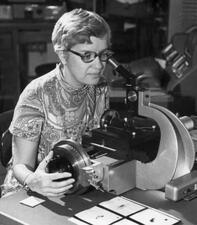
Vera Cooper Rubin
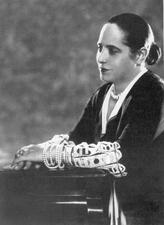
Helena Rubinstein
Helena Rubinstein built a global beauty empire by selling face cream to Depression–era housewives and teaching makeup tricks to film vamp Theda Bara.
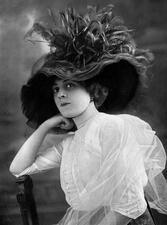
Ida Rubinstein
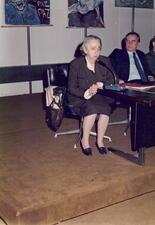
Mina Fridman Ruetter
Mina Fridman Ruetter (1922-2003), an Argentinean-born Jew, was the most prominent leader of the Yiddisher Kultur Farband (YKUF) beginning in the 1970s. She studied and worked as a writer, teacher, and translator in organizations linked to the Communist Party and the Soviet Union. She was a highly visible leader and the disciple of YKUF intellectuals such as Pinie Katz and Samuel Gordon.
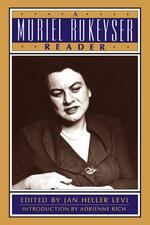
Muriel Rukeyser
Esther Jane Ruskay
Esther Jane Ruskay was a distinguished and outstanding writer and speaker in the Jewish community before the turn of the century. Her articles on Jewish life appeared in numerous newspapers, and a collection of her writings, Hearth and Home Essays, was published in 1902 by the Jewish Publication Society.
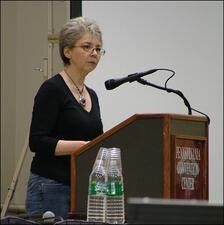
Mary Doria Russell
Russian Immigrants in Israel
Approximately 350,000 Jewish women moved to Israel from the Former Soviet Union after 1989. Among the key issues they faced were occupational downgrading, sexuality and family life, sexual harassment, marital distress, and single-parent families.
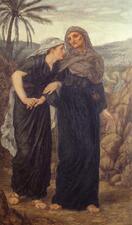
Ruth: Bible
Ruth’s story centers around her relationship with her mother-in-law Naomi and her marriage to Boaz. She struggles as a Moabite immigrant in Judea and is often forced to defer to both Boaz and Naomi. Although modern analyses both criticize and celebrate her actions, she is exalted in the Bible for her devotion and as the great-grandmother of David.

Ruth: Midrash and Aggadah
Midrash views Ruth very positively, describing her as beautiful, modest, and virtuous. The Rabbis also link Ruth with other revered women, such as Sarah and Rebekah, furthering her portrayal as an exemplary biblical woman. Despite her mother-in-law’s suspicion about the circumstances of her conversion, the midrash clarifies that Ruth converted based solely on her beliefs.
